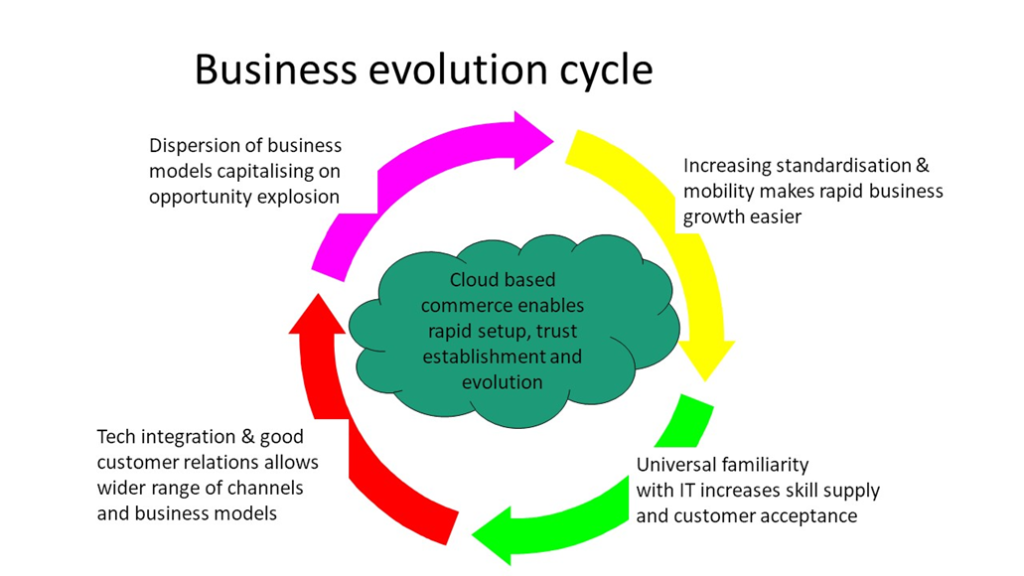The Care Economy
A care economy business serves not just profit for shareholders, but plays an active part on overall community health, treating everyone as a stakeholder. As with conventional businesses, there will be a huge range of size and sector. At the bottom end, a home baker might make cakes and sell them in the local community. At the top end, a multinational might support such businesses by assisting with admin, logistics, distribution, financial transaction processing. We see similar model today with ETSY and Amazon. One of the key developments is that AI will automate a great many of the boring and time-consuming parts of a business such as marketing, sales, distribution and taxes. That means that a lot of people who would otherwise find running a small business too daunting a task might be able to. They won’t need an MBA, or skills in marketing or sales, or legal or accountancy skills – they can all be delegated to AI. The home baker could get on with baking cakes instead of having to spend hours every day on admin. Enabling many hobbyists to become business people will help create social bonds and community cohesion.
There are many technologies that will make big contributions – social networking, AI, 3D printing, robotics, automated distribution (drones, or self-driving pods or cars).
Another area where businesses might evolve is in what I call ‘part bake’. I had the idea first while working on an event for food manufacturing. It occurred to me that people like food to be freshly cooked, and some supermarkets were selling part baked bread for exactly that purpose. I saw that the model could be extendes greatly by selling a wide range of products, not just foods, in a ‘part-baked’ state, where a local business would buy them, then personalise or adapt them to local needs. Again, it would be an excellent model for the care economy. It could be part-baked cakes, where a local cake decorator might buy several every day and then decorate them for local birthdays or celebrations. They would not need to have baking skills as well as decorating skills, and could concentrate on what they do best. Obviously, combing with the above model, a local baker could be baking the cakes, with someone a street away decorating them. A local driver might collect and deliver them, along with many other products in the area.
If we look at the bigger picture, we can see how large businesses could halp support a range of smaller ones, helping the local community enormously, but importantly, in doing so, increasing the potential markets for their own produce. Cloudy manufacturing is not charity, it makes money for all of those involved, while simulataneously helping to forge stronger relationships and bonds in the community.
Clearly, this would be a very healthy transition for business. It isn’t at all anti-capitalist, but by making companies more involved in helping other companies, the whole economy increases, making everyone better off. At the same time, very many hobbyists-become-businesspeople will gain not only ‘side-hustle’ income but more importantly, a better sense of self-actualisation, doing what they love and getting great feedback from others who enjoy their products, as well as increased social fulfilment too, from new relationships. But of course, in doing all of this, while helping social sustainability, it is also possible to improve other areas of sustainability too. Not least if that by providing many products and services from withing local communities, the environmental footprint will be far better than importing it all the way from China or Africa.
A very broad range of technologies could be linked in to this sort of enterprise expansion. Many, such as locally grown (or made) produce, smart packaging, drones and autonomous vehicles, and even AI upskilling and augmented reality support tools will be key to improving sustainability too. Everyone wins.

